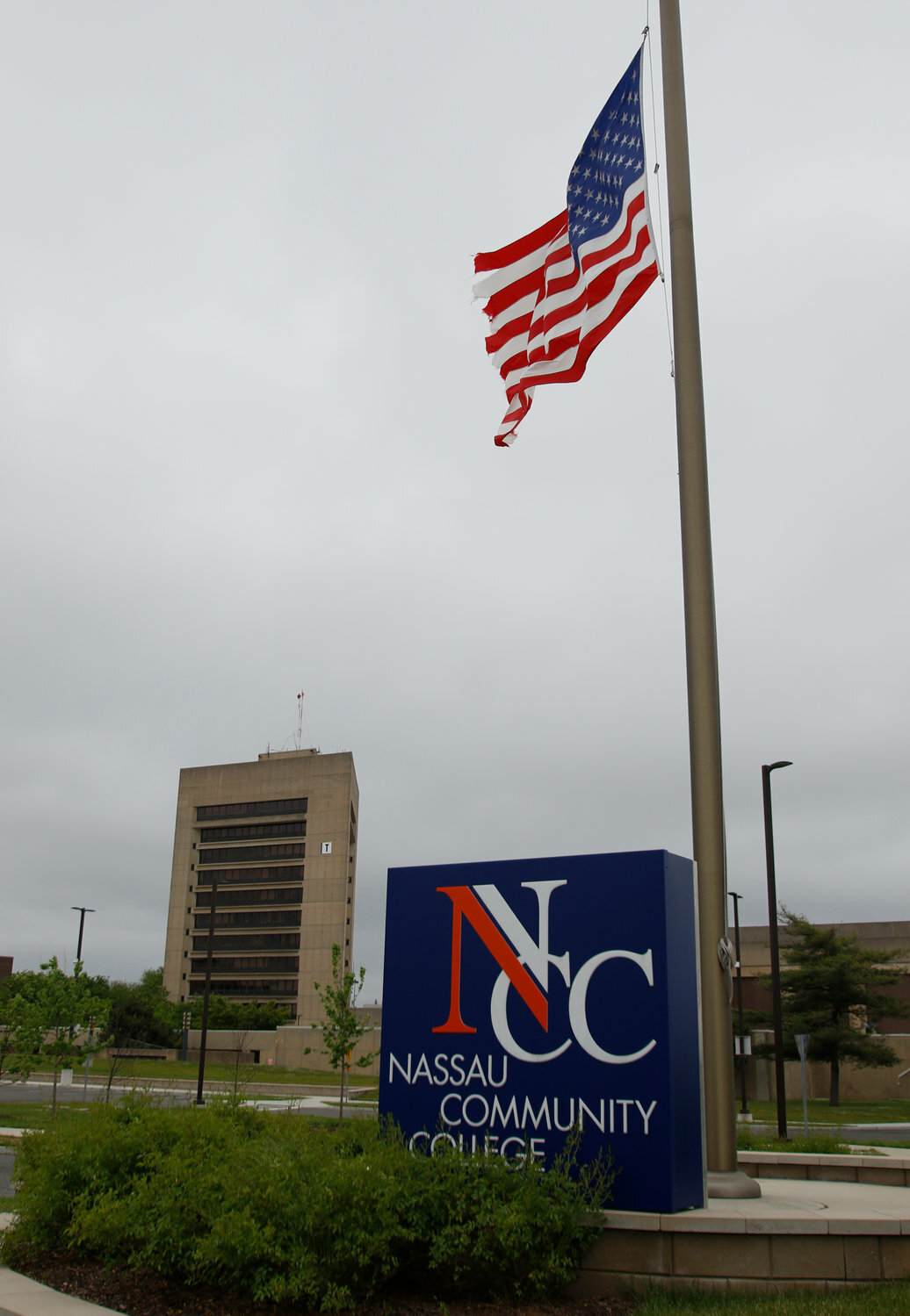Nassau County Community College students hungry for solutions as campus eateries close
With four weeks to go in the semester, students at Nassau County Community College find themselves in a food desert on campus.
As the school is facing a $14 million budget deficit for the 2024-25 academic year, Compass Group — the school’s food service provider, which has two years left on its contract with the school — submitted a letter of early termination to NCC stating that it was “no longer financially feasible to continue providing food service under the current financial arrangement,” according to an agenda item at the college’s finance committee meeting on March 12.
Compass has managed all of the campuses dining locations since 2019, providing services to approximately 18,000 students a semester.
Jerry Kornbluth, NCC’s vice president of community and governmental relations, said that Compass proposed that the college spend roughly $320,000 per year on its services for the next seven years, but school officials decided that the proposal was too costly and declined, prompting the early termination.
“Our current food services vendor has advised us that it will no longer provide dining and catering services at NCC effective Tuesday, April 16,” read a letter from Erik Paulson, consulting vice president of finance for the school. “The college continues to actively explore different food choices and vendors, informed by feedback from over 1,100 members of the campus community who took part in a survey on dining preferences.”
But last week, all of the campus-based food and dining options abruptly shut down, including the campus Starbucks, with vending machines now effectively becoming the only food option available for hungry students — which sparked a protest Monday afternoon, at which faculty and students alike demanded that school leadership reopen campus dining halls.
“I feel like they crossed the line they should have never crossed,” said Richard Ramirez, a second-year student. Ramirez, who often relied on Starbucks for breakfast before class, said he could get a full meal for roughly $10 at any of the campus eateries.
But now, he says, he either has to spend much more money on food off campus, or make himself food in between work and classes at home — which he says isn’t feasible given his schedule.
In an email sent to the campus community on April 18, school officials told students that they were working to “actively explore several options for temporary food services for the remainder of the spring semester, including food trucks and outside catering services,” and were also seeking proposals from food service providers for next semester and beyond.
But Ramirez, who is treasurer of the NCC’s Achilles club — a program for exceptional students with disabilities — said that there have been no food trucks or any real solutions presented to students by the school as of this week.
“They still haven’t brought out the food trucks that they promised or anything,” Ramirez told the Herald. He detailed how the school started doing “free lunch handouts,” but offered students only peanut butter and jelly sandwiches, leaving those with peanut allergies without an alternative.
“It’s unconscionable that NCC administrators not only knew well in advance about Compass Group’s departure, but failed to develop a contingency plan to feed their students,” Faren Siminoff, president of the Nassau Community College Federation of Teachers. “NCC knew about it, and chose to ignore it.
“The failure of this administration to respond immediately is jeopardizing the health and food security of our students on campus,” Siminoff added.
This is not the first time the college’s teachers union, which has 414 full-time faculty members, has called out the school’s “fiscal mismanagement.” Earlier this month, the school announced plans to overhaul its academic structure, consolidating 21 academic departments into just six this fall.
Siminoff says it is decisions like this one, and the allowance of all the dining halls on campus to close, that she believes is “leading them to become the Nassau University Medical Center of higher education.
“This is the latest blunder in a series of negligent actions that calls into question the competence of NCC,” Siminoff said. She attributed the problems to the college leadership’s lack of planning, incompetence and disregard for its students, their safety and their health.
“It creates a food desert on this campus,” she added.
“I’m fortunate enough to have the option to make food at home,” Ramierz said, “but I know a lot of people who don’t have that option who are really suffering from this.”
Last June, Nassau County legislators approved a $185 million 2023-24 budget for NCC, keeping tuition stable for the second consecutive year and tapping into more than $15 million of reserve funding as well. State and county funding and tuition each normally account for about one-third of NCC’s annual operating budget. According to Kornbluth, however, in the past few years the state has funded only about 20 percent, which is putting additional pressure on tuition prices and county funding to bridge the gap.
County Executive Bruce Blakeman did not respond to the Herald’s repeated requests for comment on whether the county would allocate any additional funding to NCC or intervene in the current situation.







